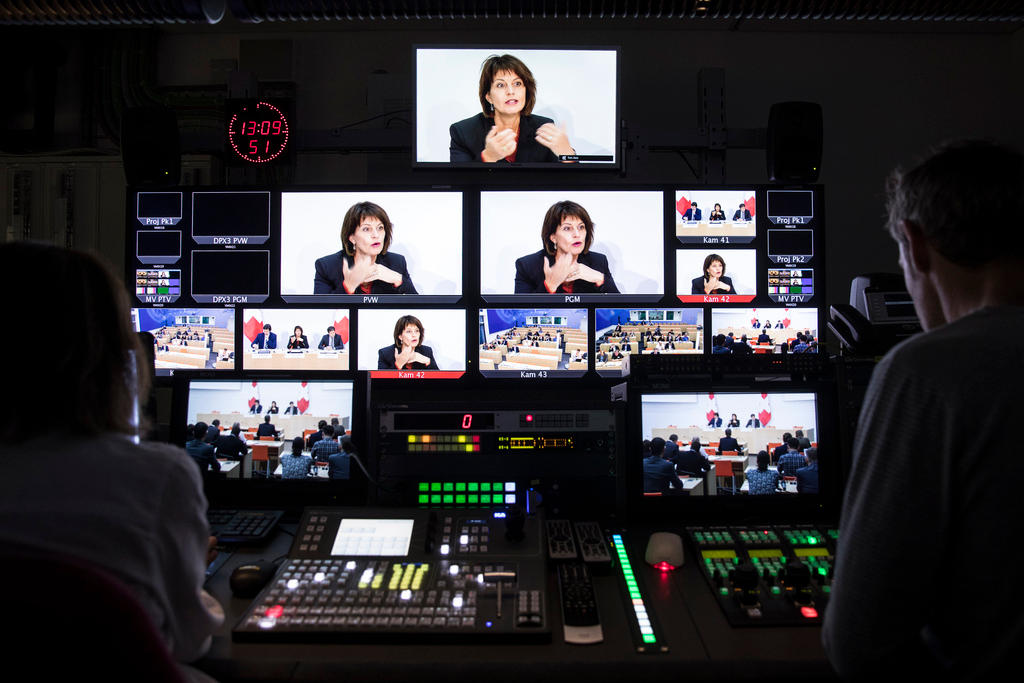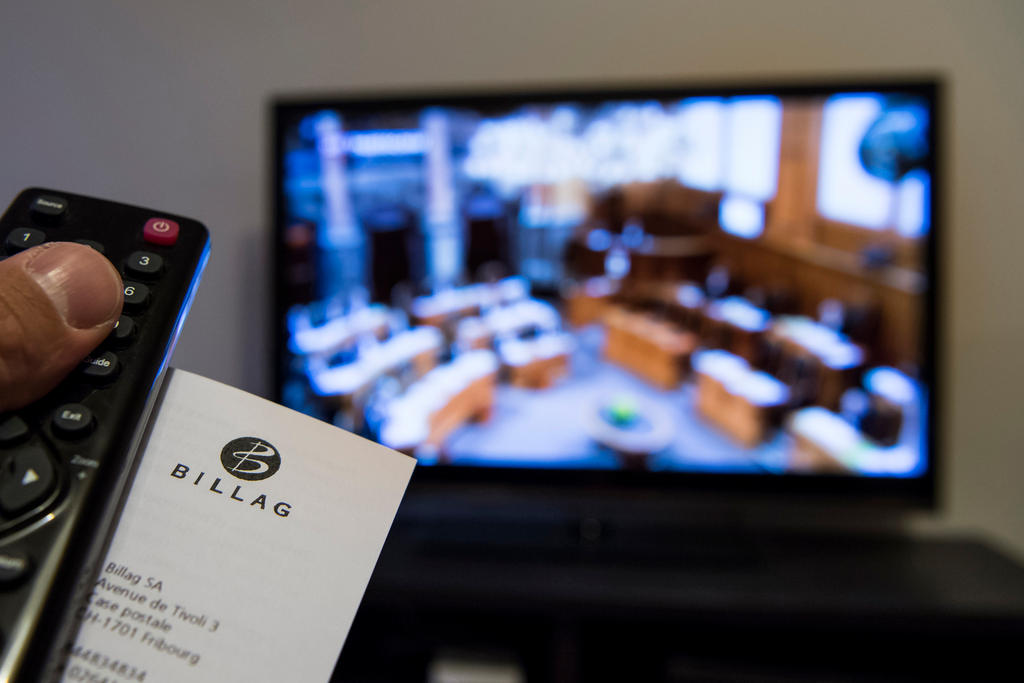‘No Billag is an attack against Switzerland’
Independent media is of utmost importance for Swiss democracy, writes Tim Guldimann. For the social democrat parliamentarian and former Swiss ambassador to Germany, the initiative to do away with the radio and TV licence fee threatens access to objective and impartial information.
I have always been critical towards my country. But the more time I spend outside its borders, the more I appreciate Switzerland. Abroad, especially during the 13 years I spent in Germany, I saw that many things don’t work as well as in Switzerland. The qualities of our country should not be taken for granted. Here are three examples:
First, we tend to think that our system of direct democracy is extraordinary. It guarantees a great degree of confidence in the population towards the state, the government, towards politics. In other countries, such confidence has dissipated. But our democracy also depends on an ability to discuss political questions openly and objectively. For this, we need independent media.
swissinfo.ch is an institution of the Swiss Broadcasting Corporation (SBC) and is financed by the Billag licence fee.
In recent years, many newspapers have lost this independence. They have been bought by influential economic entities seeking to steer public opinion according to self-interest. So, it’s all the more important that radio and television maintain their independence and their impartial character. This character is the only way that swissinfo.ch, as an institution of the SBC, can publish this article alongside that of my colleague from the House of Representatives, Claudio Zanetti.
However, if in light of future votes you would like to hear only the opinion of Mr Zanetti, in a media source headed by Christoph Blocher, then you should accept the ‘No Billag’ initiative. In which case the SBC will no longer exist.
Secondly, a threat hangs over public services in general. We often complain about Swiss Federal Railways, Swisscom, or Swiss Post, because market demands have led them to make savings by – for example – closing certain post offices. However, let’s not forget that our public services work very well by international standards. Their reliability guarantees not only a high standard of living, but also our attractiveness as a location for foreign investment.
Germany has been quicker to succumb to the illusion that privatisation allows for reductions in costs, and that the market is more efficient than the state. And yet I’m constantly irritated in Berlin: by packages not arriving, by late trains, by interrupted telephone calls. Only the German public radio, like ours in Switzerland, guarantees quality objective information.
‘No Billag’ would not only eliminate SRF programmes such as ‘Echo der Zeit’, it would also constitute a full-on attack on the up-to-now uncontested belief that the state should tackle social issues that the market ignores.
Thirdly, the essence of Switzerland lies in its linguistic and regional diversity. And because of this diversity, it is only through solidarity and respect for all parties that we can maintain internal cohesion. This applies to infrastructure, for example: we spent CHF500 million ($537 million) to build the Vereina tunnel, so that a small minority of 8,000 residents from Basse-Engadin could be linked to Switzerland.
The same applies for public radio and television. And not just to preserve Romansh, the fourth national language, but to preserve small-scale diversity across the country. A country where people feel at home thanks to local and regional media offerings. The SBC supports 21 regional radio stations and 13 regional TV stations. This costs money. And yet the licence fee, for a sport lover for example, costs less than a subscription to a private channel to watch the same games that are broadcast on national TV.
The SBC is also particularly important for the 780,000 Swiss citizens living abroad, acting as an informational bridge to the homeland. swissinfo.ch brings these people closer to the country, gives overviews of votes, and provides a setting for political debates in which they can participate.
The mandate of the SSR goes even further beyond this: through its collaboration with TV5Monde and 3Sar, Switzerland reaches 300 million French-speaking and 70 million German-speaking households across the world.
‘No Billag’ would mean the end of the SSR. The Swiss living abroad, in particular, need to understand what is really at stake for the country on March 4, 2018.
The views expressed in this article are solely those of the author, and do not necessarily reflect the views of swissinfo.ch.
Opinion series
swissinfo.ch publishes op-ed articles by contributors writing on a wide range of topics – Swiss issues or those that impact Switzerland. The selection of articles presents a diversity of opinions designed to enrich the debate on the issues discussed.

More
‘Would you still vote no if you had to pay?’

In compliance with the JTI standards
More: SWI swissinfo.ch certified by the Journalism Trust Initiative












You can find an overview of ongoing debates with our journalists here . Please join us!
If you want to start a conversation about a topic raised in this article or want to report factual errors, email us at english@swissinfo.ch.